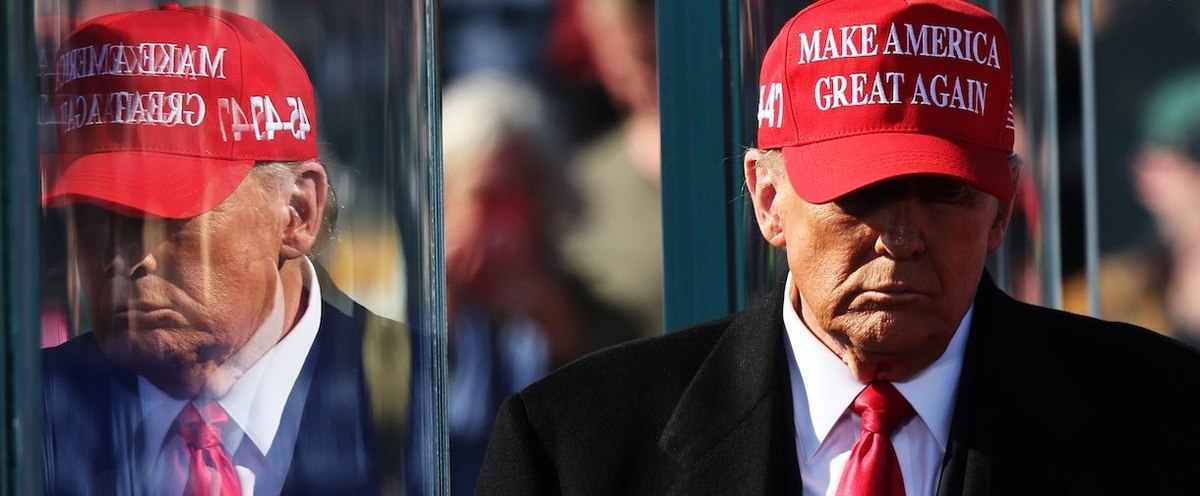Heading into the 2024 election, many registered voters hold a negative view of the country's economic circumstances. Negative assessments of the American economy are politically polarized: Donald Trump's supporters are far more likely than Kamala Harris' to say the U.S. economy's current state is poor (62% vs. 12%). Trump supporters emphasize the economy — and inflation in particular — as important to their vote much more than Harris supporters do. Many Trump supporters believe the president has a lot of control over prices, and blame Democrats for inflation. And slightly more voters say they trust Trump than Harris when it comes to economic issues — even though Harris' specific economic policies generally are more popular than Trump's.
Voters' overall assessment of the U.S. economy as negative is driven by Trump supporters, 62% of whom rate the U.S. economy as "poor"; by contrast, 40% of Trump supporters describe the global economy as poor, 36% describe their local economy this way, and 38% say their own financial situation is poor. Harris supporters have more positive views of each of the economic circumstances asked about. They give roughly similar assessments of the financial situation of the country and their local community; slightly more say the global economy and their own personal financial situation are poor or fair.
37% believe the country is in a recession, including a majority (57%) of Trump supporters.
Eight in 10 registered voters say the economy is very important to them when thinking about this year's election, more than say so about any of 19 other issues asked about in a recent poll. Other economic issues also rank highly, including inflation (70% say it is very important) and taxes (58%).
Economic issues are important to supporters of both major presidential candidates, though generally they are prioritized more by supporters of Trump than of Harris.
Voters generally trust Trump over Harris on issues related to the economy. Trump has a 10-percentage-point lead over Harris on the economy overall: Registered voters are more likely to say he would do a better job than Harris (49%) than say she would do a better job (39%). On inflation, Trump leads Harris by 8 points, and on taxes, by 3 points. Trump's edge in handling inflation and the economy means he leads on two of the three issues that voters are most likely to say are very important when thinking about the election. Trump consistently has led on these two issues since Harris entered the race.
At this stage of the 2020 election, likely voters were split on whether Trump or Joe Biden would do a better job of handling the economy.
More say that Trump's economic policies would mostly help the U.S. economy than say Harris' would (46% vs. 38%). Fewer say the election of either candidate would mostly help their own personal financial situation: 39% say a Trump victory would and 28% say a Harris win would.
The entities that voters are most likely to blame for inflation, among those asked about, are profit-seeking large corporations and spending by the federal government. More place a lot of blame for inflation on Democrats (47%) than on Republicans (31%). These results are little changed from January.
Harris supporters are most likely to blame large corporations for inflation, while the greatest shares of Trump supporters place a lot of blame on Democrats and on federal-government spending.
Most voters think the president has some — but not a lot — of control over prices, including for gas, health care, food, and housing. Views on whether the president has a lot of control vary widely between Harris' and Trump's supporters. Trump supporters are far more likely than Harris supporters to say the president has a great deal of control over various prices — especially gas prices.
Most Harris supporters (55%) believe that if she is elected, the prices of goods and services will decrease gradually; 4% expect them to decrease immediately and 22% say they won't change. Only 7% think prices will increase. A larger share of Trump supporters expect their candidate will decrease prices if elected, either gradually (66%) or immediately (18%); only 6% think prices will increase. Harris' and Trump's supporters give similar assessments of what will happen if their opponent is elected: Majorities say that outcome will cause prices to increase.
Half of voters (51%) believe that if Trump is elected president, his economic policies mostly would favor the rich; 30% say he'd treat all groups equally and 11% say he would favor the middle-class. Just 2% say he would favor the poor. Most of Trump's supporters (66%) think he would treat all groups equally.
Voters are divided on who Harris' economic policies mostly would benefit: 30% say the middle-class, 22% say the rich, 15% say the poor, and 17% say all groups equally. About half of Harris' supporters (53%) think her policies would mostly benefit the middle-class, while 29% think she'd benefit all groups equally.
Related:
- The Economy: What 2024 voters want and which candidate they trust
- Which industries do Americans think would do better with Harris or Trump as president?
- Kamala Harris' economic platform resonates across party lines
- What Americans think about the U.S. economy
- Ahead of rate cuts, fewer Americans were expecting rising inflation
- Most Americans support raising taxes on billionaires
- What Americans think about labor unions and their effects
- Americans prefer more, not less, regulation of dozens of major industries
- What Americans know — or think they know — about inflation
- Which types of debt do Americans want the government to provide relief for?
- Most Americans oppose monopolies and support antitrust laws
- Which sectors of the economy do Americans think are liberal and conservative?
- Americans' most and least favored industries
- Three-quarters of Americans think the federal minimum wage is too low
- Most Americans support raising taxes on billionaires
See the results for this YouGov poll
Methodology: This poll was conducted online on October 30 - November 1, 2024 among 1,143 U.S. adult citizens. Respondents were selected from YouGov’s opt-in panel to be representative of adult U.S. citizens. The sample was weighted according to gender, age, race, education, 2020 election turnout and presidential vote, baseline party identification, and current voter registration status. Demographic weighting targets come from the 2019 American Community Survey. Baseline party identification is the respondent’s most recent answer given prior to November 1, 2022, and is weighted to the estimated distribution at that time (33% Democratic, 31% Republican). The margin of error for the overall sample is approximately 4%.
Image: Getty
What do you think about the election, American politics in general, and everything else? Have your say, join the YouGov panel, and get paid to share your thoughts. Sign up here.











